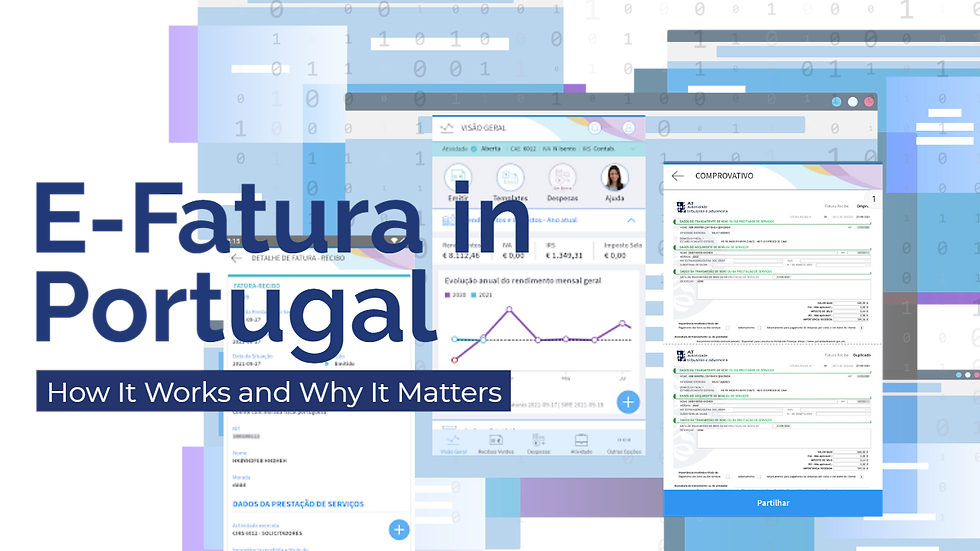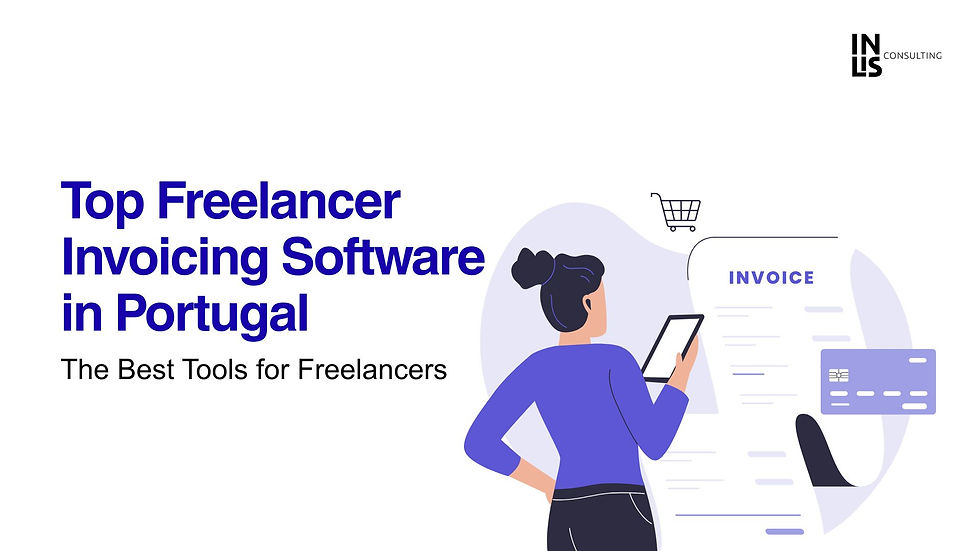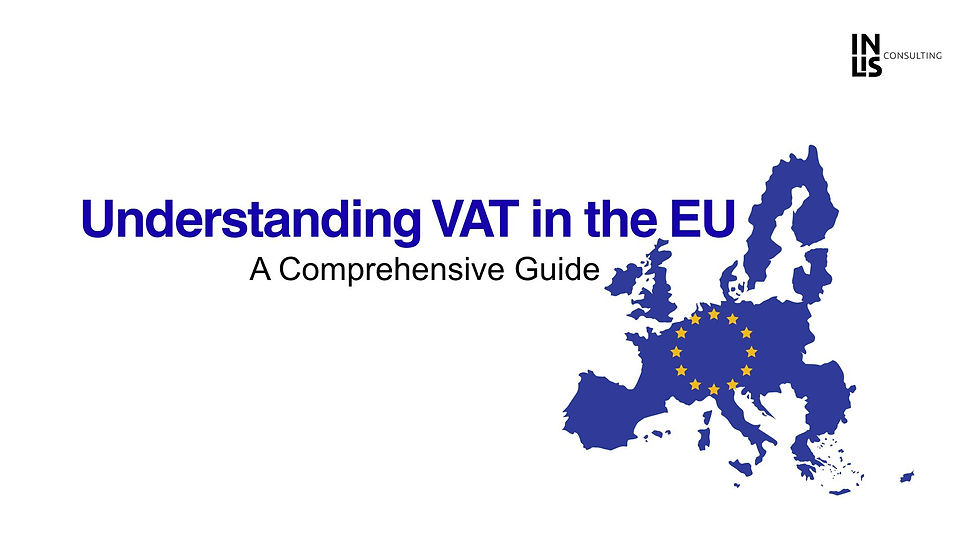e-Fatura in Portugal: How It Works and Why It Matters
- INLIS Consulting
- Aug 20, 2025
- 3 min read
e-Fatura is the digital platform managed by the Portuguese Tax Authority (Autoridade Tributária e Aduaneira). It’s where all your invoices and receipts are registered, and it plays a crucial role in your annual IRS (income tax) return.

1. What is e-Fatura?
The e-Fatura system is an online platform available through the Portal das Finanças. Every time you make a purchase in Portugal, businesses are required to issue an invoice with your NIF (Número de Identificação Fiscal). That invoice is then reported electronically to the Tax Authority and appears in your e-Fatura account.
These registered invoices are used to calculate:
Tax deductions in your IRS (e.g., health, education, housing, and general family expenses).
IVA (VAT) benefits, where part of the VAT you paid in certain sectors can be deducted from your IRS.
2. Why is e-Fatura Important?
Maximize deductions → Only expenses with your NIF are eligible for IRS deductions.
Transparency → You can monitor your expenses throughout the year.
Tax compliance → Prevents errors and omissions in your IRS return.
Faster filing → When the IRS season comes, most data is pre-filled thanks to e-Fatura.
3. How e-Fatura Works
Step 1: Collect your invoices with NIF
Always provide your NIF when shopping (at pharmacies, schools, gyms, restaurants, etc.).
Without your NIF, the expense won’t count for tax deductions.
Step 2: Monitor your expenses online
Log into Portal das Finanças → e-Fatura.
Check if all your invoices are registered under the correct category (e.g., health, education, general expenses).
Step 3: Validate or correct invoices
Sometimes invoices appear with the status “pending.”
You must validate them and assign them to the right category — otherwise, they won’t be counted in your IRS deductions.
4. Expense Categories in e-Fatura
Different types of expenses lead to different tax benefits. Key categories include:
Health → Medical appointments, pharmacies, health insurance.
Education → School fees, university tuition, textbooks.
Housing → Rent, mortgage interest (for older contracts), property maintenance.
General family expenses → Supermarkets, clothing, household goods.
IVA deduction benefits → VAT from restaurants, hairdressers, mechanics, and vet services.
Each category has its percentage deduction and maximum limit, which directly impacts your IRS refund or bill.
5. Deadlines You Must Know
All year → Always request invoices with your NIF.
February 15 (next year) → Deadline to validate invoices in e-Fatura.
March 16–31 → Period to check and contest if deductions are missing or incorrect.
April 1 – June 30 → IRS filing period (your validated e-Fatura expenses are pre-filled automatically).
Missing these deadlines can mean losing deductions and paying more tax than necessary.
6. Common Mistakes to Avoid
Not giving your NIF when shopping — the expense won’t count.
Forgetting to validate invoices — pending invoices won’t be included.
Wrong category allocation — placing an education expense in general expenses can reduce your benefit.
Last-minute checks — waiting until February increases the risk of errors.
7. Tips to Make the Most of e-Fatura
✅ Always provide your NIF, even for small purchases.
✅ Check your account monthly instead of leaving it all for February.
✅ Use the mobile app “e-Fatura” to track expenses on the go.
✅ Keep physical receipts until your IRS process is complete (for safety).
✅ If you’re self-employed, be extra careful: invoices for professional activity must be issued through the Portal das Finanças.
Conclusion
The e-Fatura system is your best ally for a smooth IRS process in Portugal. By keeping your invoices updated and validated, you ensure that every eligible expense is counted toward your tax deductions — potentially saving you hundreds of euros each year.
👉 The secret is simple: request invoices with your NIF, check them regularly, and never miss the February validation deadline. With these habits, your IRS 2026 filing will be easier, faster, and more rewarding.




Comments